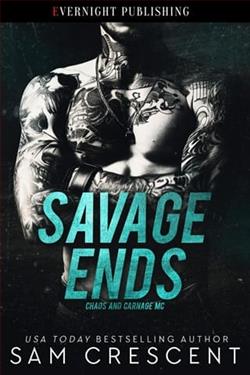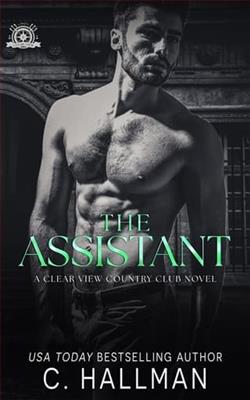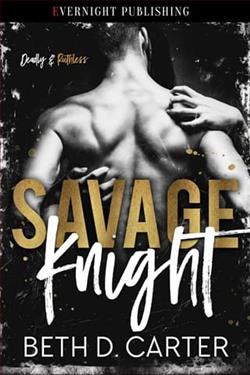Page 104 of It's One of Us
She finds it—the biggest one on the street, naturally; Annika is made of money and then some. The code works. She stumbles into the foyer, drops her bag, makes sure to lock the door behind her. In the darkness, she can hear the ocean lapping against the shore. She follows the noise out onto a deck that juts over the house-edge of an infinity pool. There is a boardwalk just beyond the gate; solar lights glow along the wooden path to the beach. The air is soft and sultry, smells of brine and limes and a hint of mold, that unique scent only found oceanside.
She inhales deeply, letting the aroma and the calm permeate her body and skin inside and out.
Yes, she can escape here. Leave her marriage, leave her business, leave her friends.
Leave her life.
Start over.
41
THE MURDERER
He’s always loved open spaces. The peace, the quiet, the stillness. He stands at the entrance to the rundown barn, watching the afternoon unfold. Birds chirp and flit in the trees. A frantic carpenter bee buzzes industriously by the door. A barn cat slinks through the tall grasses by the rusted tractor, happily stalking field mice that she brings back to his bed at night, dropping their half-eaten carcasses on his rough pillow before curling up on his legs, sated and purring under his ministrations. The day has been warm, the humidity heavy and thick, the sun traversing a hazy blue sky.
He doesn’t have access to the internet, or to television. This place is as tranquil and calm as he can make it. There’s been so much noise in his head lately, a buzzing almost as audible as the bees’, and the more he’s alone, the worse it gets. He’d searched for weeks to find someplace he could use to escape, finally found this place. It’s perfect for his needs.
The barn floor is littered with tools, chisels and plowshares and old bits of harness. It has been deserted for years, and he’s made it as cozy a home as he can, sweeping away the moldy hay to make room for his things. The television in the corner—hooked up to nothing, there is no electricity in here, but a television always makes a space feel more like home. A small scratched café table and two cane-backed chairs. His old couch against the wall looking at the falling-down horse stalls—currently a woman reclines upon it, watching him with fearful eyes. His bed, the mattress on the floor, trash bags underneath it to keep it from being infested with bugs. The cat helps keep down the insects, though ants climb over him in the night sometimes, maybe a spider or two; he had a bite on his side that got infected, but he knew his way around the first aid kit, and the fever receded the following day. He knows enough about curing sickness to be dangerous. All those first aid and CPR classes his mother made him take.
And then there are the treats. His prizes. He uses a Jenga-stacked set of old fence posts as bookshelves, lining things up tidily. Knickknacks and old clothes, silverware, jewelry trinkets, a book now and again.
He’s gotten very good at getting in and getting out of houses. He’d started sneaking into places in high school, using talents he’d picked up at the hospital, especially how to bend a bobby pin and insert it into a lock. Later, he saved up and bought his own set of lock picks. He had a rake, but it was much too noisy for the quiet places he preferred to investigate.
That’s all it was, investigations. Something he practiced because it was fun. Hanging out in the neighborhood, learning people’s habits, when they would be there and when they wouldn’t. Spying until he learned the security codes. The first time inside, getting a sense for things. The smells, the sounds. Taking something little, something easily missed, assumed misplaced. Nothing that people would notice, especially not right away. The ubiquitous security cameras and doorbells make it harder, and he avoids those places if he can. But sometimes he is compelled.
Something captures his attention, and he looks toward the barn’s interior. Ah. The woman is making noises. She screamed herself hoarse in the van that first day and is still too full of fight for his liking.
He doesn’t like it when they scream. It’s unnerving. Disruptive to the synapses. He’s learned to gag them the moment he gets his hands on them so they won’t break his eardrums shrieking.
The tape goes on the mouth first.
But this one struggled. Yelled and cursed and spit fire. She scratched him when he took her, managed to get the tape off her mouth, and wriggled like a worm on a hook in the back, shouting invectives at him as he drove down the interstate toward the farm.
Then you bind their wrists. They’re so surprised by their mouths being taped that they won’t fight for a moment.
“Just pull over and let me go. Please. I won’t say anything. Just drop me off and leave. I swear I won’t—”
“Shut up shut up shut up shut up!” he roared at her, which only made her scream louder.
“Why are you doing this? Why? I have a family.”
He looked back over his shoulder. “If you don’t shut up, I am going to gut you, do you understand? You will die a slow, horrible death, and you will be the only one to blame.”
This shocked her into silence, then she started to cry. The tension left his shoulders.
Crying he could handle.
Screaming he could not.
Once he got her in the barn, he stayed away from her—she was strong, and she was pissed. Like a hornet who’s been swatted at too many times. Instead of giving in, she’d gotten enraged, and he could still feel that fury from her sometimes. So he left her alone until she was too weak from lack of food or water to fight back, and then he slipped in the drugs, and she’s been nice and drifty since. He learned the trick on a forum. It works, too.
He brought her the remaining lilies, though they’ve all died now, drooping and stinking in their bucket. He thought that might make her feel better, having some flowers. He’d bought so many they wouldn’t fit in the vase—God, he’d been so terrified seeing Olivia hit that deer. He’d saved her life, and he was proud of himself. He’d brought the flowers to the hospital and slipped them into her room while everyone was asleep—so easy to move around hospitals as long as you stay away from the maternity wards. Those are much too hard to infiltrate. But he likes hospitals. Likes being able to walk the halls and look in on the strangers. He liked it when he was a kid, when they would come look in on him, to make sure he wasn’t scared, or didn’t need someone to talk to in the night. The orderlies and nurses were mostly kind, to drop by and sit, to hold his hand. He was so young, everything scared him then. The hallucinations were terrifying; he shudders even now thinking about them. The gaping maws, the razor-sharp teeth, the sense of slipping away into the unknown blackness, of his soul disappearing. The monsters of his youth fill his nightmares still. Most kids are afraid of a cracked door or something hiding under the bed. He was afraid of the madness he could feel swirling inside him like a molten river. Afraid of what it meant. Afraid he would act on his urges. The fantasies, the visions, always coated in blood and fear.
Later, as a teenager, controlled, always controlled, he used to join his mom on the oncology ward sometimes. He always liked to sit with the kids, their big eyes, their bald heads. They just wanted a friend. Someone to treat them like they were normal, not sick. He got that. He totally got that. He was like the service dogs who came to the ward on occasion; he let them pet him and play games and fed off their smiles.
Now he is the one giving comfort where it’s needed most.
The woman is making slightly different noises, and he interprets them in his usual compassionate way. He moves the portable toilet to the side of the couch, helps her sit up, eases off her pants. He looks away while she relieves herself.















